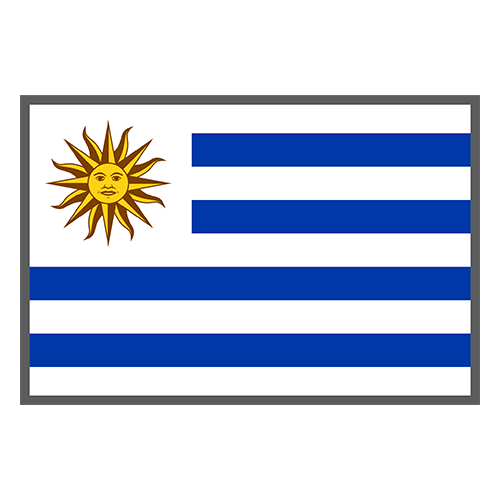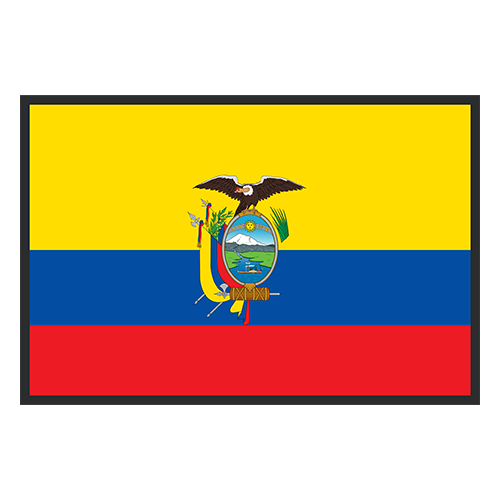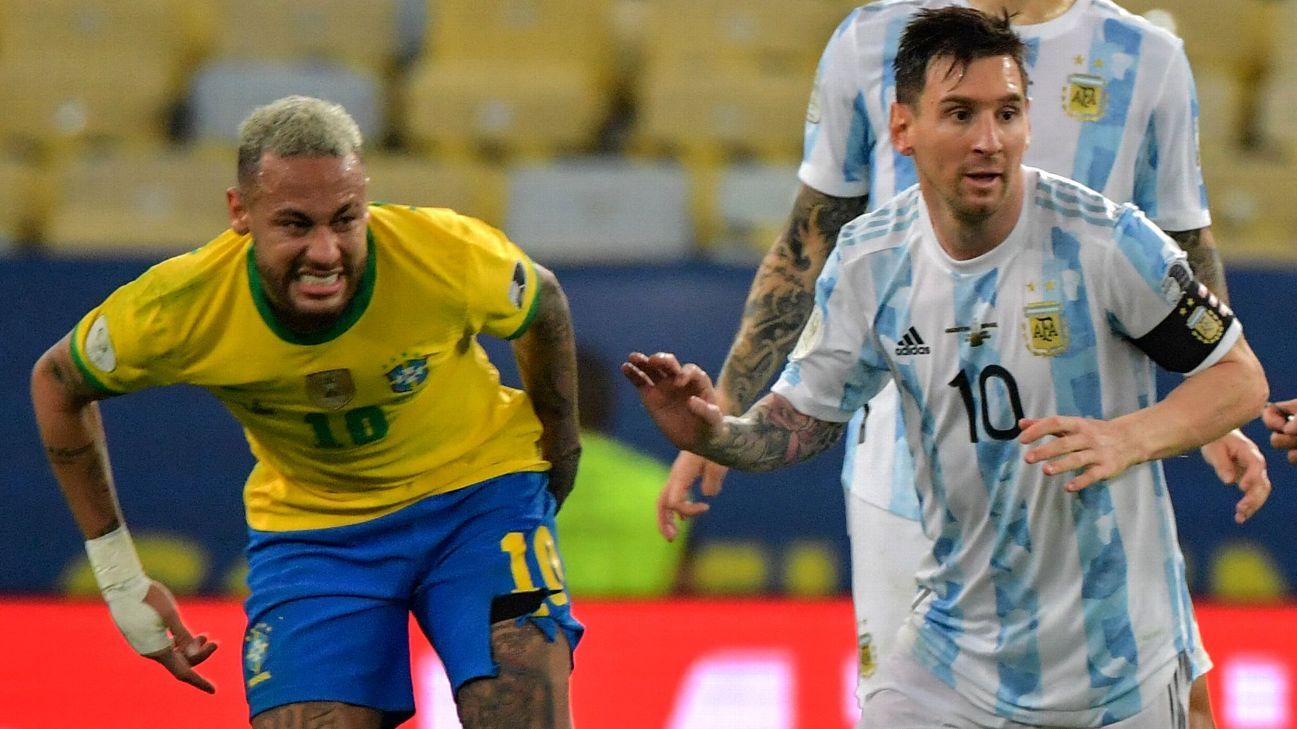Twenty years have gone by since South America last got its hands on the World Cup. Since then, strikingly, every Brazil campaign has ended as soon as they have come up against European opposition in the knockout rounds. And though Argentina got past Switzerland, Belgium and the Netherlands in 2014, all of their recent World Cups have also ended the same way: knocked out by the Europeans.
A combination of the pandemic and the birth of the Nations League means there has been very little football between Europe and South America since Russia 2018. Brazil beat the Czech Republic, while Argentina drew with Germany, both in 2019. It is hard, then, to measure the respective balance of forces in the buildup to Qatar — something that makes this World Cup especially intriguing.
Brazil and Argentina are certainly full of swagger at the moment. Often one of them has a hard time in South America’s qualifiers and has to dig itself out of a hole. Not this time. Confidence is high, and morale might have been boosted by the draw.
Uruguay and Ecuador will make it a South American foursome in Qatar, and if Peru win a playoff against Australia or United Arab Emirates, they will be the continent’s fifth.
– CONMEBOL World Cup qual.: Results | Final standings
– World Cup 2022 qualifying: How it works around the world
– Stream ESPN FC Daily on ESPN+ (U.S. only)
 BRAZIL
BRAZIL
Group G opponents: Serbia, Switzerland, Cameroon
What to expect: This is a group that may be tougher than it looks to many Brazilian eyes. Brazil have met all three recently — the two Europeans were in their group in Russia, while they faced Cameroon four years earlier. Cameroon would certainly be expected to put up stiffer opposition than they did in 2014. Even so, Brazil are clear favourites. Four years ago they beat Serbia but were held by Switzerland, a team they will not make the mistake of underestimating this time around.
Where should they finish: Brazil have not been conceding goals. With more top-class keepers and centre-backs than they can use, Brazil do not even look like they’re conceding goals. And in the past few months, some attacking options have blossomed: wingers Vinicius Junior, Raphinha and Antony, centre-forward Matheus Cunha, playmaker Lucas Paqueta. Suddenly it is no longer all about Neymar, taking some of the pressure off the Paris Saint-Germain star in a tournament that is vital to his legacy. Last time round, Brazil peaked too soon — they were better in the buildup than in the tournament. Now they look more experienced, a better side than the one that probably deserved to take Belgium into extra time in that epic 2018 quarterfinal. Brazil’s sights are set very high, and it will take a very good side on a very good day to stop them.
 ARGENTINA
ARGENTINA
Group C opponents: Saudi Arabia, Mexico, Poland
What to expect: Argentina have had some tough draws in the past, but they can have few complaints about this one. Lionel Scaloni’s side, unbeaten in almost three years, will be seen as favourites for all three of their group matches. On paper, they would appear to be off to a straightforward start against Saudi Arabia. Mexico, currently under former Argentina boss Gerardo Martino, are more frequent opponents — beaten in the World Cups of 2006 and 2010, and three times in friendlies since the most recent World Cup. And while Robert Lewandowski might ask some interesting questions of their defence, Argentina would seem to have too much for Poland.
Where should they finish: Something is going to need to go badly wrong for Argentina to fail to make it out of this group. The spring in their stride is justified. The lineup looks to be the best team, the outstanding collective unit, in Lionel Messi’s long career. The midfield circuit of passing means that Messi now receives possession closer to goal, rather than having to come back and start the moves. And the defence has tightened considerably, especially since the emergence of keeper Emiliano Martinez and centre-back Cristian Romero. It will be interesting to see how they defend against the best opponents, but anything less than the quarterfinals will be a disappointment, and they have to be seen as one of the candidates to go all the way.
 URUGUAY
URUGUAY
Group H opponents: South Korea, Portugal, Ghana
What to expect: This is a meeting of recent foes. Uruguay beat Portugal, then the reigning European champions, four years ago, and in 2010 they overcame both South Korea and Ghana on the way to the semifinals. This, though, gives no grounds for complacency. Group H could well be the best balanced of all the eight groups, with all four sides nurturing realistic chances of a place in the last 16.
Where should they finish: Uruguay’s fate is hard to predict for two reasons. First, the group is so well balanced. Things will probably be decided on thin margins. And second, Uruguay still have some work to do sorting out their side. What to do with the veterans? Captain and centre-back Diego Godin now needs protection. Might they be better off without him? It seems that Luis Suarez and Edinson Cavani can no longer play together up front — at least not in every game — so how to set up the side? Where is the attacking pace going to come from? If they can get the answers right, then another quarterfinal is a possibility. If not, they could be going home early.
 ECUADOR
ECUADOR
Group A opponents: Qatar, Senegal, Netherlands
What to expect: No one in Ecuador imagined that the team would get to Qatar when the qualification process started, and here they are kicking off the competition against the hosts, who beat them 4-3 in a friendly in 2018. This match will have a strong emotional content. No one really knows how Qatar will react on this kind of stage, and much the same is true of Ecuador, a young side with little experience under this kind of spotlight. The opener looks like the vital game. Three points would give them the confidence and momentum to face two difficult opponents. First-day defeat would be a disaster.
Where should they finish: In 2006, Ecuador got out of their group and fell narrowly to England in the second round. It is tough to imagine them going further this year; there are problems in a number of positions, such as goalkeeper. But they are quick and strong, with a very interesting generation of emerging talents. Anything that happens in Qatar will serve as useful experience on the road to 2026, when they should be a threat.
